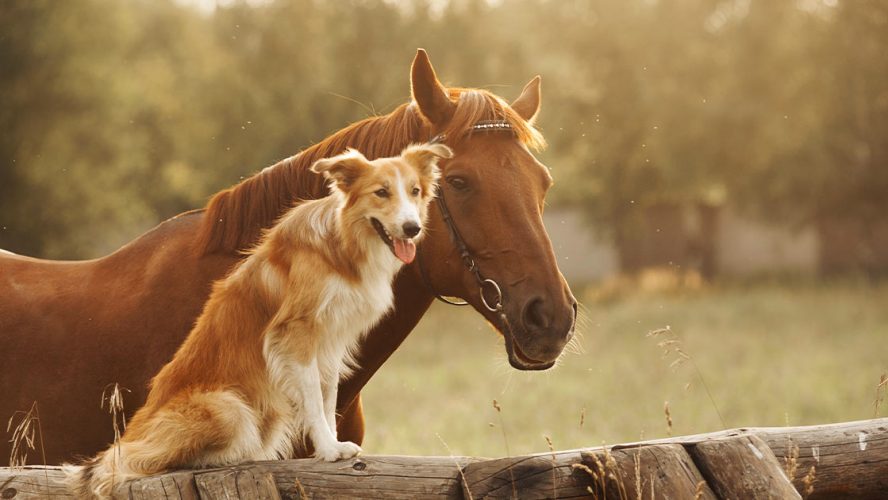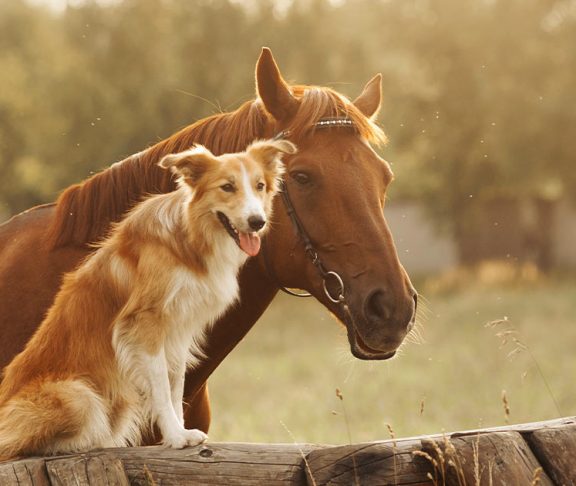
Colleen McElwain
Programs Director, Canadian Animal Health Institute
Amidst the COVID-19 pandemic, many have questions about keeping their pets and livestock safe and healthy. Veterinarians have the answers.
Caring for our animals has always been important to ensure their good health and welfare, but with the recent restrictions due to the COVID-19 pandemic, things are a little trickier. Fortunately, the veterinary, animal health, and agricultural sectors were all deemed essential by Canadian governments at the height of the crisis. With that in mind, it’s important to note that many veterinarians are still operating on an urgent-care basis and are using telemedicine, meaning they’re working with animal owners over the phone or through a web platform, to assess their patients.
Veterinarians and their teams play a critical role in ensuring optimal animal health because the animals we live and work with often cannot tell us when they don’t feel well. All animal owners can support good animal health and welfare by working with a veterinarian to assess a pet’s individual health needs and to establish herd or flock animal health programs in the case of farm animals.
As trained experts when it comes to animal diseases, veterinarians can provide the best advice about which treatment or prevention options are appropriate based on a number of factors such as where you live, your pet’s lifestyle, and the type of animals being raised. If you have questions, always talk to your veterinarian because they’re the most knowledgeable about how a medicine works, as well as common side effects and contraindications to assess whether its benefits outweigh its risks.
For example, vaccinating animals to prevent diseases is a common practice used for both pets and livestock because vaccines are the safest and most effective way to avoid a potentially life-threatening illness. This not only safeguards animal health, it often saves the owner a costly treatment program later on. Other diseases and conditions may need a veterinary prescription for an antibiotic, pain medication, or even a parasiticide. Since the weather has warmed up across the country, it’s worth mentioning that there are a large number of products that can help to control parasites — like worms, lice, fleas, and ticks — and your veterinarian can help you select the best one for your pet or livestock.
Can my pets or livestock get COVID-19?
- COVID-19 is being spread from human to human, and domestic animals are not the source of the virus.
- There’s some evidence that COVID-19 is being transmitted from humans to animals, with recent media reports indicating cats, a few dogs, and mink.
- For all farm animals, ongoing research continues to confirm that domestic livestock production is safe and has not played a role in the spread of COVID-19.
- The Canadian Food Inspection Agency has some good resources to keep pets and livestock safe.
Quick tips:
- Call your veterinarian should your animal fall ill, suffer an injury, or need some other form of treatment to discuss options for care.
- Call ahead to ask about any new physical distancing or hygiene measures put in place at the clinic before your appointment.
- Follow staff instructions and be aware that only one person may be able to accompany your pet and that you may be asked to wear a face mask.
- Limit contact whenever possible by staying two metres apart and wearing a face mask if you can. Public health recommendations help to safeguard us all.
- Reschedule if you’re sick to help protect the health and safety of everyone at the clinic.
- Wash or disinfect your hands before and after the visit. This is vital!



